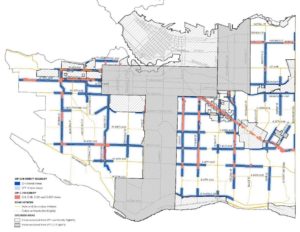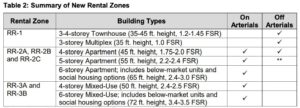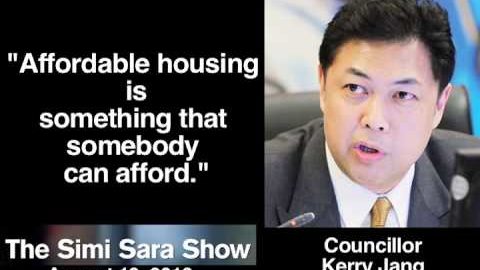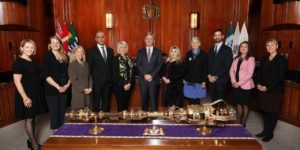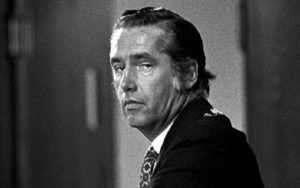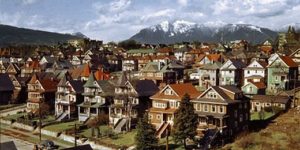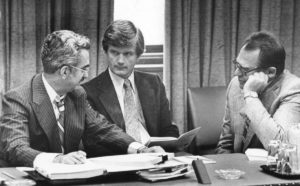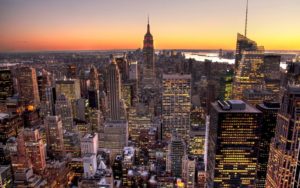 Vancouver Planning Staff and Developers Set to Turn Vancouver into Manhattan West
Vancouver Planning Staff and Developers Set to Turn Vancouver into Manhattan West
A core element of Colleen Hardwick’s successful 2018 run for office as a Vancouver City Councillor was the need for the city to draft a visionary planning document — to be called The Vancouver Plan — a bold, comprehensive and inclusive city-wide, neighbourhood and heritage community development plan for all residents living in the City of Vancouver, a 30-year plan that would focus on creating opportunities to integrate new housing, recreation centres, jobs, and amenities across our city.
As a first order of business early in her inaugural term of office, working with three term Vancouver City Councillor, Adriane Carr, Councillor Hardwick seconded a pioneering motion that would have staff employed within the Planning Department at Vancouver City Hall draft The Vancouver Plan (initial title, the City-Wide Plan) document, towards the creation of a livable, affordable and sustainable city, a single, city-wide plan that would guide future growth consistent with key community priorities, a guide to our city’s future growth …
- The provision of affordable housing in all of Vancouver’s 22 neighbourhoods;
- Working on a meaningful climate action plan, and environmental sustainability;
- The provision of well-paying jobs city-wide & in neighbourhoods + economic growth;
- Prioritizing public and active transportation needs for Vancouver residents;
- Arts & culture, and the provision for related community amenities;
- Infrastracture, including community pools, ice rinks and recreation centres.
Public input would be sought in The Vancouver Plan engagement process, which continues through until this day.
The final draft document of The Vancouver Plan is set to be presented to the public and to members of Vancouver City Council in early spring of 2022.
In the video above, the narrator of the visionary Vancouver Plan intones …
“Now more than ever, it’s important to reduce our use of carbon fuels, and adapt to climate change. To advance these big ideas, we need to rethink our low density neighbourhoods. To that end, we could help shape future growth more in major transit areas. New housing, jobs, child care centres, and public plazas would be built along these transit corridors.”
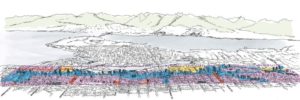
Remembering for just a moment that The Vancouver Plan is far from having completed its community engagement process, and is not due to be presented to both the public and Vancouver City Council until spring 2022, this past Wednesday, November 3rd, the Planning Department presented The Broadway Plan to the members of Vancouver City Council, a fait accompli document that will add 50,000 new residents along the Broadway corridor, framed by Vine Street to the west, 1st Avenue to the north, Clark Drive to the east, and 16th Avenue to the south.”
As reported in The Daily Hive Vancouver by civic affairs reporter Kenneth Chan …
“The emerging direction of the densification strategy calls for increasing Central Broadway’s population by up to 50,000 to about 128,000 residents — an increase of 64% compared to 78,000 residents today. This would be achieved by growing the number of homes in the area from over 60,000 today to up to 90,000 units, with much of this is intended to be more affordable forms of housing.
Added office, retail, restaurant, institutional, and creative industrial spaces would grow the number of jobs from 84,400 today to up to about 126,000 jobs.”
The residential and employment targets outlined above would occur over a period of the next 30 years, through until 2050. Tower heights between 30 and 40 storeys will be built in areas around the stations. Shoulder areas adjacent to the immediate area surrounding the stations — generally within a two or three block radius — will see height allowances of 20 to 30 storeys.
 Example of a “Centre” area near the future South Granville Station, November 2021. (City of Vancouver)
Example of a “Centre” area near the future South Granville Station, November 2021. (City of Vancouver)
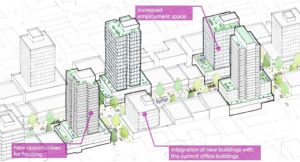 Example of “Shoulder” areas along Broadway in the Broadway Plan, November 2021. (City of Vancouver)
Example of “Shoulder” areas along Broadway in the Broadway Plan, November 2021. (City of Vancouver)
More details on the “Broadway Plan” may be found both in Mr. Chan’s story in The Daily Hive, and John Mackie’s story in The Vancouver Sun.
The question has to be asked: if the reasoned, thoughtful and neighbourhood resident consulted 30-year visionary document, titled The Vancouver Plan, is not due to be presented to Vancouver City Council until spring 2022, why are the members of Vancouver City Council being asked by the City Planning Department to approve The Broadway Plan as early as next week, on either November 16th, 17th or 18th?
And why, if The Vancouver Plan is a city-wide and neighbourhood visionary development plan for Vancouver as we head towards 2050, why is the City Planning Department taking a piecemeal approach to presenting any number of development plans in the pipeline to Council now — months in advance of the presentation of The Vancouver Plan to the public & members of Vancouver City Council?
Tomorrow on VanRamblings, we’ll present 1) several more “visionary” large scale developments currently in the Vancouver development pipeline — of which you may not be aware — that are destined to have a major impact on the livability of our much cherished Vancouver home; 2) a continued exploration of VanRamblings’ ongoing thème du mois — “A city for whom? Benefiting whose interests?”; and 3) whether the tens of thousands of housing units set to be built as envisioned in proposed Vancouver development plans to be presented to Council even before the final draft of The Vancouver Plan will be made public, will result in an overbuilt city that will cater explicitly to wealthy and offshore investment interests and their developer friends, rather than to the implicit and explicit interests of Vancouver residents living in the 22 neighbourhoods across our city.
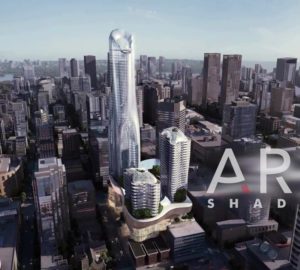
The 70+ storey Bay Parkade development — due east of the Hudson’s Bay Company, and sandwiched between Seymour and Richards streets — one of seven 65+ storey downtown developments approved by Vision Vancouver (the first two, the Shangri-la Hotel on Georgia, and its neighbour across the street, Holborn’s “Trump Tower”), the Bay Parkade development will be presented to Council for approval sometime before the 2022 Vancouver civic election.
